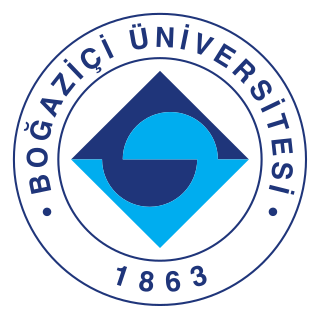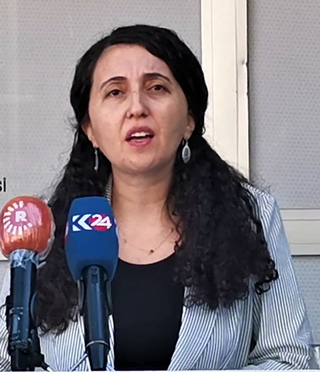
Boğaziçi University, also known as Bosphorus University, is a prominent public research university in Istanbul, Turkey founded in 1971 on the campus inherited from a former American educational institution, Robert College. It is the first American university to be founded outside the United States. Its main campus is located on the European side of the Bosphorus strait. It has seven faculties and two schools offering undergraduate degrees and seven institutes offering graduate degrees. Traditionally, the language of instruction is English.
Can Bartu was a Turkish basketball and football player of Circassian origin. He was the first Turkish footballer to play a final in Europe. His statue was erected in Istanbul. After retirement, he also worked as a pundit and sports journalist.

Lesbian, gay, bisexual, and transgender (LGBT) people in Turkey face legal challenges not experienced by non-LGBT residents, though the general climate for LGBT people is considered to be less repressive when compared to most other Muslim-majority countries.
The Romani people in Turkey or Turks of Romani background are Turkish citizens and the biggest subgroup of the Turkish Roma. They are Sunni Muslims mostly of Sufi orientation, who speak Turkish as their first language, in their own accent, and have adopted Turkish culture. Many have denied their Romani background over the centuries in order to establish a Turkish identity, to become more accepted by the host population. They identify themselves as Turks of Oghuz ancestry. More specifically, some have claimed to be members of the Yörüks, Amuca, Gajal or Tahtacı.

Dursun Karataş was a Turkish communist of Kurdish descent. He commanded the revolutionary left and DHKP-C. DHKP-C is seen as a "terrorist organization" in Turkey, the EU and the USA. The revolutionary left was closed in the 90s due to lack of personnel.

Istanbul Pride is a pride parade and LGBT demonstration held annually in Turkey's biggest city, Istanbul since 2003. Participants assemble in Taksim Square before marching the entire length of İstiklal Avenue. It has been described as the first and biggest LGBT event in Muslim-majority countries.

Celil Oker was a Turkish crime fiction writer.

Bianet is a Turkish press agency based in Beyoğlu, Istanbul. Its focus is on human rights and it is mainly funded by a Swedish organization. It was established in January 2000 by journalists around Nadire Mater, former representative of Reporters Without Borders, and left-wing activist Ertuğrul Kürkçü and is tied with Inter Press Service. It is mostly funded by the European Commission through the European Instrument for Democracy and Human Rights (EIDHR). Erol Önderoğlu served as the monitoring editor for Bianet for several years. His work for Bianet included quarterly reports on free speech in Turkey.
IMC TV was a Turkish nationwide TV channel launched on 1 May 2011. Presenters included Nuray Mert and Fehim Taştekin. In 2011 it hosted a talk show series called Gamurç // Köprü - the first of its kind in Turkey focussing exclusively on Armenian-Turkish relations.
Ethem Sarısülük was an activist and worker who was killed by the police in Ankara during the 2013 Gezi Park protests. Sarısülük, who was seriously injured by police officer Ahmet Şahbaz during the Gezi Park protests in Ankara, stayed in intensive care unit for 14 days. He was diagnosed with brain death on 12 June 2013 and died in Ankara Numune Hospital on 14 June 2013 at 3:15 pm. In the autopsy report it was stated that the bullet which killed him was found inside the brain.
The DHKP/C insurgency in Turkey refers to the Marxist–Leninist insurgency waged by the Revolutionary People's Liberation Party/Front (DHKP/C) against the Republic of Turkey, ongoing since 1990. The insurgency began with political assassinations in the early 1990s, and has escalated in the past few years with the use of suicide bombers.
Trilyon Avı is the Turkish version of the game show Deal or No Deal. Premiered on December 9, 2003, the show was shown on aTV. It was hosted by Zafer Ergin, a drama player and voice actor. Contestants can win from 100,000 TL to 1 trillion TL.

The murder of Ahmet Yıldız occurred on 15 July 2008 in Üsküdar, Istanbul. The anti-LGBT hate crime was committed as an honor killing by his father Yahya Yıldız, in what has been widely referred to as the first known case of an anti-gay honor killing in Turkey. To date, Yahya Yıldız has become a fugitive and has yet to be captured and put on trial.
Ayı Sözlük is an LGBTQ collaborative dictionary founded by İlker Bozkurt on 14 August 2011. The majority of the contributors are LGBTQ individuals. The purpose of establishing the dictionary is to make the voice of LGBTQ individuals heard as a part of the society, to defend LGBTQ rights, to enable them to write freely, to support young LGBTI individuals in their acceptance processes, to make them feel that they are not alone and wrong, and to fight against transphobia, homophobia, and hate crimes. Sözlük yazar kadrosu içinde gönüllü avukatlar hukuk danışmanlığı yaparken sözlük yazarları arasında gönüllü psikologlar da bulunmaktadır. Over time, it has become a community that organizes events and conducts charity projects. Since July 2014, they have been accepted as an LGBTQ community by ILGA.
Ayça Bingöl is a Turkish actress. She graduated from the Theatre Department at the Istanbul University State Conservatory in 1998.

The 2021 Boğaziçi University protests are demonstrations held against the appointment of Melih Bulu by President Recep Tayyip Erdoğan as rector of Boğaziçi University, one of the top academic institutions in Turkey.

İmam Taşçıer is a Kurdish politician of the Peoples' Democratic Party (HDP) and member of the Grand National Assembly of Turkey.

Ebru Günay is a Kurdish jurist and a politician of the Peoples' Democratic Party (HDP). She was elected a member of the Grand National Assembly of Turkey in 2018 and is currently the spokeswoman of the HDP.
Züleyha Gülüm is a lawyer and politician of the Peoples' Democratic Party (HDP). She is a human and women rights activist and since 2018 she is a member of the Grand National Assembly of Turkey.









